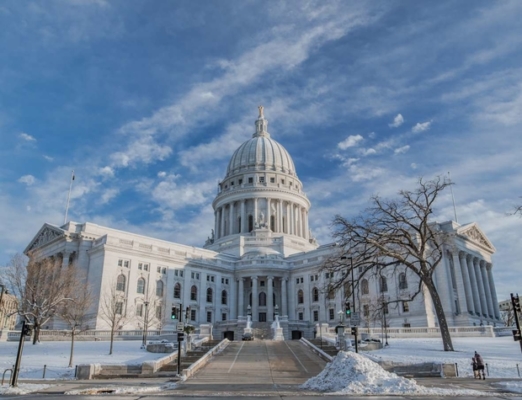Thousands of businesses across Wisconsin wouldn’t be taxed for coronavirus aid under a plan approved Tuesday by state lawmakers.
Under the bill, Wisconsin businesses that received Paycheck Protection Program loans last year as part of federal coronavirus relief wouldn’t have to pay state income taxes on their loans and would be able to deduct expenses paid with loan money from their state taxes. Those policies are already in place for federal taxes.
The measure passed the state Assembly on a vote of 87-3. It passed the Senate on a 27-5 vote.
During Assembly debate, state Rep. John Macco, R-Ledgeview, the bill’s sponsor, argued the measure is necessary to support small businesses across Wisconsin.
“What this bill does … is a prime example of good governance that continues to put Wisconsin first and reaffirms that our small business community should not be punished for accepting aid during a time of great uncertainty,” Macco said.
The Paycheck Protection Program loans, approved by Congress and rolled out last spring, were available to small businesses, most with 500 employees or fewer. The funds could be used to cover expenses like rent, utilities and payroll as business declined during the pandemic. In most cases, the loans were forgivable.
Though most ultimately voted to support the bill, some Assembly Democrats argued the proposal should have been more targeted to businesses that lost money during the pandemic. They argued some businesses have actually posted profits over the past year.
Minority Leader Gordon Hintz, R-Oshkosh, backed a plan that would have capped the state tax deduction at $250,000 and provided $241 million in state grant assistance to struggling small businesses.
“There’s a better way to do this and for those of you that want our tax dollars to be spent wisely, want transparency and accountability,” Hintz said during debate.
Some opponents have argued the legislation allows for “double dipping,” because it bars taxing businesses on the loans as income and gives them the ability deduct expenses paid with the forgivable loan money.
“The tax cut would significantly reduce the amount of resources Wisconsin has to invest in families, schools and communities that have been battered by the pandemic and the recession, and it would fail to help many small businesses who are the intended beneficiaries,” said Jon Peacock, project director at the Wisconsin Budget Project.
According to a memo from the Legislature’s nonpartisan budget office, the plan to exempt the loans from state taxes would cost Wisconsin about $419 million in revenue over the next three years.
Businesses have lobbied for weeks for the state law change, arguing Wisconsin businesses that have been struggling during the pandemic should not have to pay out additional money after receiving federal support.
“It is imperative that we make sure that this is fixed,” said Kristine Hillmer, president and CEO of the Wisconsin Restaurant Association, in a written testimony to lawmakers last month. “Otherwise, many small businesses will not be able to pay their state income taxes and we will see many business closures.”
According to the federal government, about 90,000 Paycheck Protection Program loans were distributed in Wisconsin in 2020, totaling almost $10 billion. So far this year, about 26,000 loans have been given out in the state, totaling roughly $2 billion.
The proposal also includes other state tax law changes, including medical insurance deductions for self-employed people and deductions for economic injury disaster loans. Those changes would cost the state about $121 million over the next three years, according to the Legislature’s budget office.
The bill now heads to Gov. Tony Evers’ desk. The governor hasn’t said if he will sign the plan, but the lopsided votes in the Legislature mean lawmakers could potentially override the governor if he were to veto the bill.
Recent Posts
The U.S. Department of Labor Announces Proposed Rule To Protect Indoor, Outdoor Workers From Extreme Heat
The U.S. Department of Labor has proposed a new rule aimed at protecting workers from extreme heat hazards. This initiative seeks to safeguard approximately 36 [...]
Supreme Court Overturns Chevron Deference: What It Means for Workplace Safety and Regulation
The landscape of federal regulation is set for a seismic shift following a recent Supreme Court decision. On June 28, in Loper Bright Enterprises, et [...]
Navigating the Compliance Maze: How NARFA Simplifies Employee Benefits for Automotive and Trade Industries
In today's complex regulatory environment, businesses in the automotive, roads, fuel, and related industries face unprecedented challenges in managing employee benefits. Recent studies show that [...]




